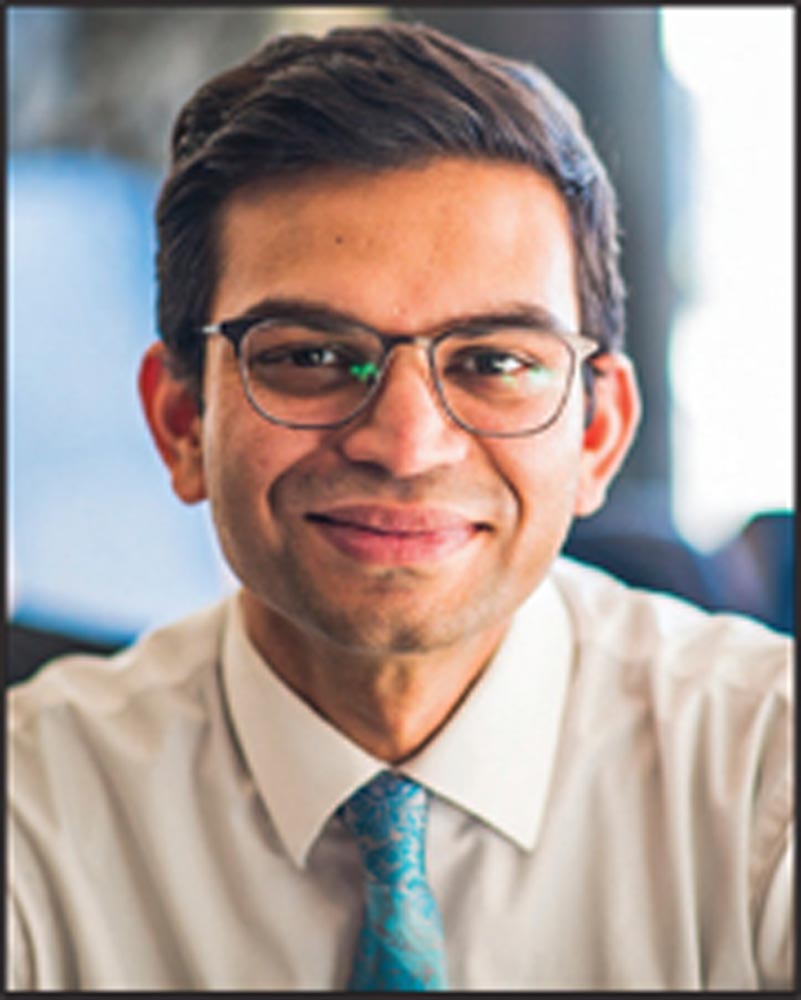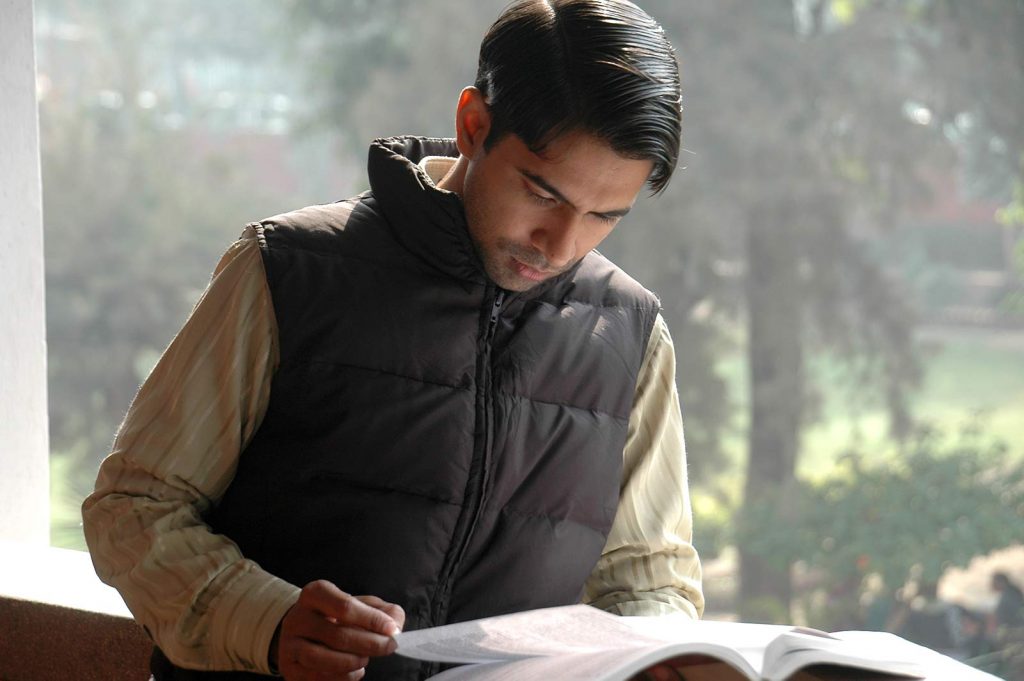BY ANKUR PATEL

Growing up hindu in America, Sanatana Dharma was always part of my identity, but never something our family discussed in depth. Beyond basic thinking around reincarnation, karma and moksha, my understanding of Hinduism was folkloric. Amongst my extended family we gathered for pujas, celebrated holidays and accepted that as our tradition. My being a Hindu piqued the curiosity of my peers, but I felt ill-equipped to answer their questions. Without a modern system for studying Hinduism, I believe many other American-born Hindus will find themselves in the same situation.
At that point in my youth I felt ungrounded and spiritually isolated. When going to mandir—where this feeling should disappear—language barriers and a lack of sufficient answers from elders only continued to make me feel disconnected. Many young people have become resigned to having unanswered questions and have concluded that our traditions don’t make sense, don’t communicate purpose, and are therefore not relevant to our daily lives. Personally, I went off to find purpose in civics, government work and public education instead.
When I later ran for State Assembly in California, I once again started participating with Hindu organizations. Naturally I had the intention of raising money and collecting votes, but I also continued to align my actions with my beliefs. I eventually enrolled in a Hindu University of America (HUA) course titled Orientation to Hindu Studies. We Hindus have inherited thousands of years of sophisticated thought on the nature of the universe, life and humanity, which came through in this course. This was a far different introduction than the Eurocentric version of history I’d received in California public schools in my youth.
But it is not enough to critique the dominant perspective. Alternatives are needed, and the HUA is part of that.
Overarching and competing systems like government and religion have broad influence in public consciousness wherever we go. The diverse and insightful depths of Hinduism should compete in this marketplace of ideas. In order for the average Hindu American to become confident in sharing and talking about their traditions and correcting popular misconceptions, we need to develop and agree on a coherent Hindu narrative. Currently there are competing Hindu narratives—some imposed by outsiders, some hijacked by politicians. But for me, the real Hindu narrative is about the interconnectedness of everything, while giving purpose, motivation and direction to all people who are trying to live their best lives while aspiring towards enlightenment and moksha.
We need legitimate institutions that have broad appeal, are respected, capable, and have a long-term vision for where we are going. Different faith traditions in America have recognized these ideas in one way or another and have diligently worked to better represent their own beliefs in public consciousness. We, as Hindus, are lagging behind. For me, that means we need to be sharing our ideas in the marketplace of education at all levels. An academic institution such as Hindu University of America can be part of the evolving global ecosystem that opens the planet up to a more inclusive dharmic perspective. Dharma sustains us all and is critical for order and balance everywhere.
Hindu University of America has helped me take an important step in a dharmic direction, and I encourage you to enroll in the Orientation to Hindu Studies course to further this conversation and our collective understanding.
ANKUR PATEL is Director of Advancement for Hindu University of America. See: ankur.patel@hua.edu
